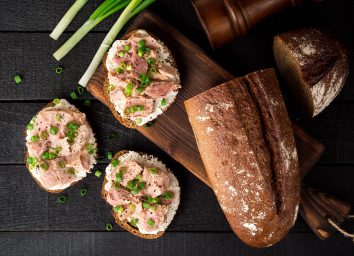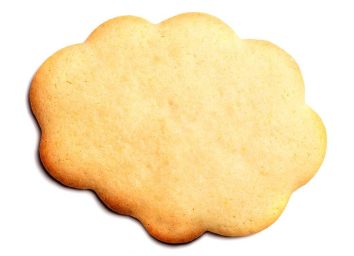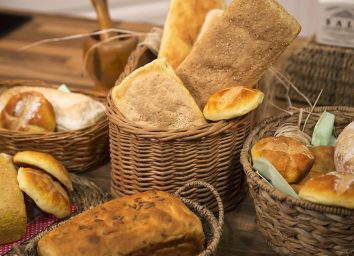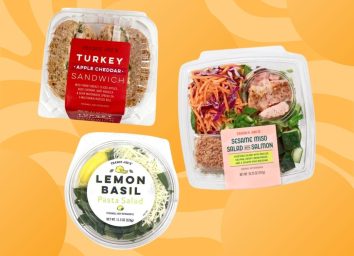Is Dave's Killer Bread Healthy? What Nutritionists Want You To Know
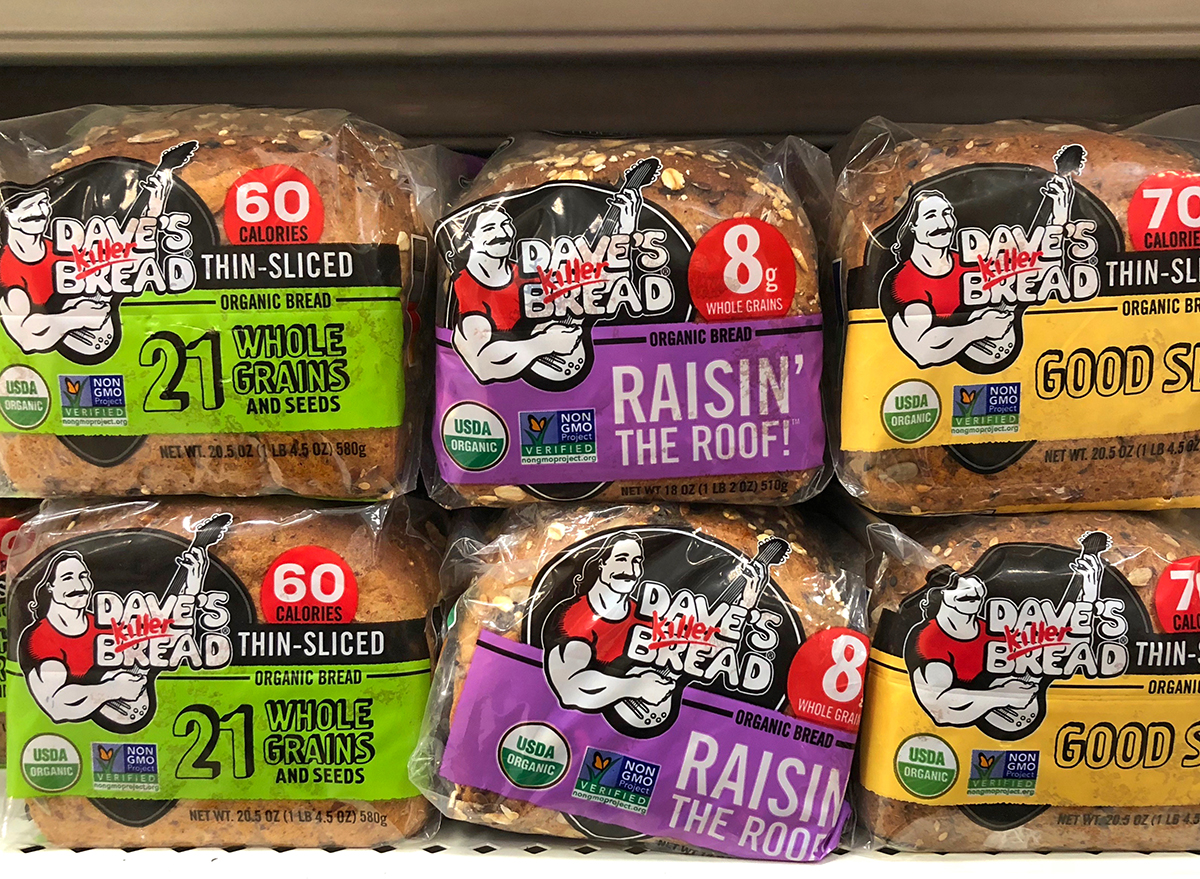
The bread aisle at the grocery store can be overwhelming. With options like whole grain, whole wheat, potato, oat, flaxseed and more, store-bought breads are not created equal. But Dave's Killer Bread is becoming a popular brand on store shelves (including Costco), touting its protein-packed dough and whole-grain ingredients as its main buying points. It also claims to be the number one selling organic and Non-GMO Project Verified bread.
"Dave's Killer Bread tastes great and many of my clients, friends, and family gravitate towards it in the supermarket because of the clever, 'health-conscious' labels and marketing," says Charlotte Martin, MS, RDN, CSOWM, CPT, registered dietitian nutritionist and owner of Shaped by Charlotte.
While Dave's Killer Bread is positioned as a healthy alternative to the ultra-processed loaves we all grew up on, we wanted to get two dietitians' opinions on the brand, and if they'd recommend purchasing it as your next loaf.
What is the story behind Dave's Killer Bread?
Dave's Killer Bread was founded in 2005 in Portland, Oregon after co-founder Dave Dahl was hired back to his family's bakery by his brother Glenn after serving 15 years in prison. Besides its delicious bread, Dave's Killer Bread company is also well known for its hiring practices. Through what it calls Second Chance Employment, the company supports those with a criminal background by hiring them to work in its factories. Approximately one in three of the more than 300 employee-partners at the company's Milwaukie, Oregon bakery has a criminal background. The company also founded the Dave's Killer Bread Foundation which encourages other businesses to hire employees with criminal backgrounds.
Dave's Killer Bread (which is now owned by Flowers Foods, the company that also operates Wonder Bread, Nature's Own, and Sunbeam) has multiple different products you can buy besides just "killer" bread:
- "killer" bread
- thin-sliced bread
- sprouted bread
- bagels
- English muffins
What's in Dave's Killer Bread?
As we've already established, Dave's Killer Bread is organic and Non-GMO. We took a closer look at the Nutrition Facts panel with two dietitians to review the nutrition information and ingredients. We looked specifically at the 21 Whole Grains and Seeds loaf.
Nutrition information for Dave's Killer Bread
These are the nutrition facts for one slice of Dave's 21 Whole Grains and Seeds loaf:
- Calories: 110
- Fat: 1.5 g (0 g saturated)
- Sodium: 170 mg
- Total Carb: 22 g
- Fiber: 5 g
- Total sugar: 5 g
- Protein: 5 g
"One slice of bread contains 5 grams of protein (quite high for bread!) and 5 grams of dietary fiber, which is excellent," says Brittany Modell, MS, RD, CDN, registered dietitian and founder of Brittany Modell Nutrition and Wellness.
While just one slice of Dave's Killer contains 17 percent of your daily value of fiber and a solid dose of protein, it does tip the scales a bit with sugar.
"One slice of bread contains 5 grams of sugar, which comes out to over 1 teaspoon of sugar. If you were to use two slices of bread to make a sandwich, that comes out to over 2 teaspoons of sugar, which is significant," says Modell.
Even though each slice of 21 Whole Grains and Seeds bread has 9 percent of your daily value of added sugars, Modell says Dave's Killer Bread may still be a better option than other bread on the shelf.
"Compared to other brands of bread (with less nutritious ingredients) it may have about the same amount of sugar. If you are going to consume bread regardless, you are better off choosing bread with 5 grams of fiber (with the added sugar) than bread with zero to 1 gram of fiber with the same amount of added sugar."
Ingredients in Dave's Killer Bread
According to Modell, although there are a lot of ingredients, when you actually break down what the ingredients are, they overall are very good.
"For example, the first three ingredients listed are: water, organic whole wheat flour, and organic cracked whole wheat. Other ingredients include flax seeds, organic sunflower seeds, organic barley flakes, organic millet, organic spelt flakes, etc.," says Modell. "DKB is also free of a lot of the preservatives often found in classic store-bought bread."
One of the only ingredients that concerns the dietitians? Sugar.
"Sugars are often added to packaged breads to help it rise (feeds the yeast) and improve the taste of the final product," says Martin. "Although it's hard to find packaged breads without added sugar, you can find ones with less than half the amount of this DKB variety."
"Also, just because it says 'organic' cane sugar, doesn't mean it's any healthier. Organic sugar is still sugar, period."
If you're looking for a lower-sugar DKB option, your go-to should be their Powerseed loaf. It still has 5 grams of protein and 4 grams of fiber, but only 1 gram of sugar.
How can you pick a healthy bread?
What dietitians use to determine whether a loaf of bread is healthy or not comes down to a list of do's and don'ts.
- quality ingredients: It's not just the quantity of ingredients that matters to Modell; it's also the quality. "Can you pronounce the ingredients? Can you recognize them? Ingredients ideally should be whole foods, such as nuts, seeds, whole grains, etc."
- fiber: "I also look to see how much fiber is in the bread. Whole grains are a great way to add additional fiber to your diet," says Modell. "Bread that contains higher amounts of fiber is a win."
- low-sugar: "A 'healthy' bread should have no more than a couple of grams of added sugar per slice (but the less sugar the better)," Martin says.
- made with sprouted grains: "I typically look for sprouted breads, since most sprouted bread (like Trader Joe's, Food For Life, Silver Hills Bakery, etc.) fit these criteria. The DKB Thin-Sliced Sprouted Bread has 3 grams of added sugar, 3 grams of protein, and 2 grams of fiber, which is close enough," says Martin.
- whole grain: "Wheat flour" doesn't cut it. "The word 'whole' has to be in front of 'wheat', or else it's not a whole grain, and therefore has been stripped of fiber," says Martin. "I try to stay away from non-whole grain ingredients, like 'enriched' or 'bleached' wheat flour."
There are some red flags you should avoid when buying store-bought bread.
- ingredient names: "If you cannot pronounce ingredients or recognize them, that is immediately a red flag," says Modell. "Food companies often add preservatives and fillers to products, which may have a questionable impact on your health."
- number of ingredients: "For example, if one item has 20 ingredients, when it should really have two," says Modell. "With the case of DKB, the ingredients are actually adding value, such as additional fiber and protein and they are coming from wholesome foods. However, this is not always the case, so definitely be on the lookout for food products with too many ingredients."
- bleached flour: The words "bleached" and "enriched" mean that the flour has been ultra-processed to remove its nutrient-rich outer layer and then manufacturers add back the nutrients it stripped. If you see "bleached" on the label, it means manufacturers use whitening agents to make the flour whiter.
The bottom line: Is Dave's Killer Bread healthy?
Both dietitians are fans of DKB for similar reasons.
"I think Dave's Killer Bread is a good option when purchasing bread," says Modell. "It is high in fiber and protein. Although the sugar content might be higher than some of its health-conscious counterparts, it can add value to your diet."
And Martin agrees.
"I think Dave's Killer Bread is definitely a better choice than many other bread brands on the market, but some of their varieties are better than the others," says Martin.
She is a fan of the Powerseed loaf, which only has 1 gram of added sugar per slice, 5 grams of protein and 4 grams of fiber. And of course, the Thin-Sliced Sprouted Bread.
"Any and all foods can fit into a balanced diet in moderation, including all DKB varieties," she says. "But if you have more than a serving or two of bread on a daily basis, I'd recommend one of their lower sugar varieties (like the Powerseed), or incorporate another low sugar brand into your routine."
